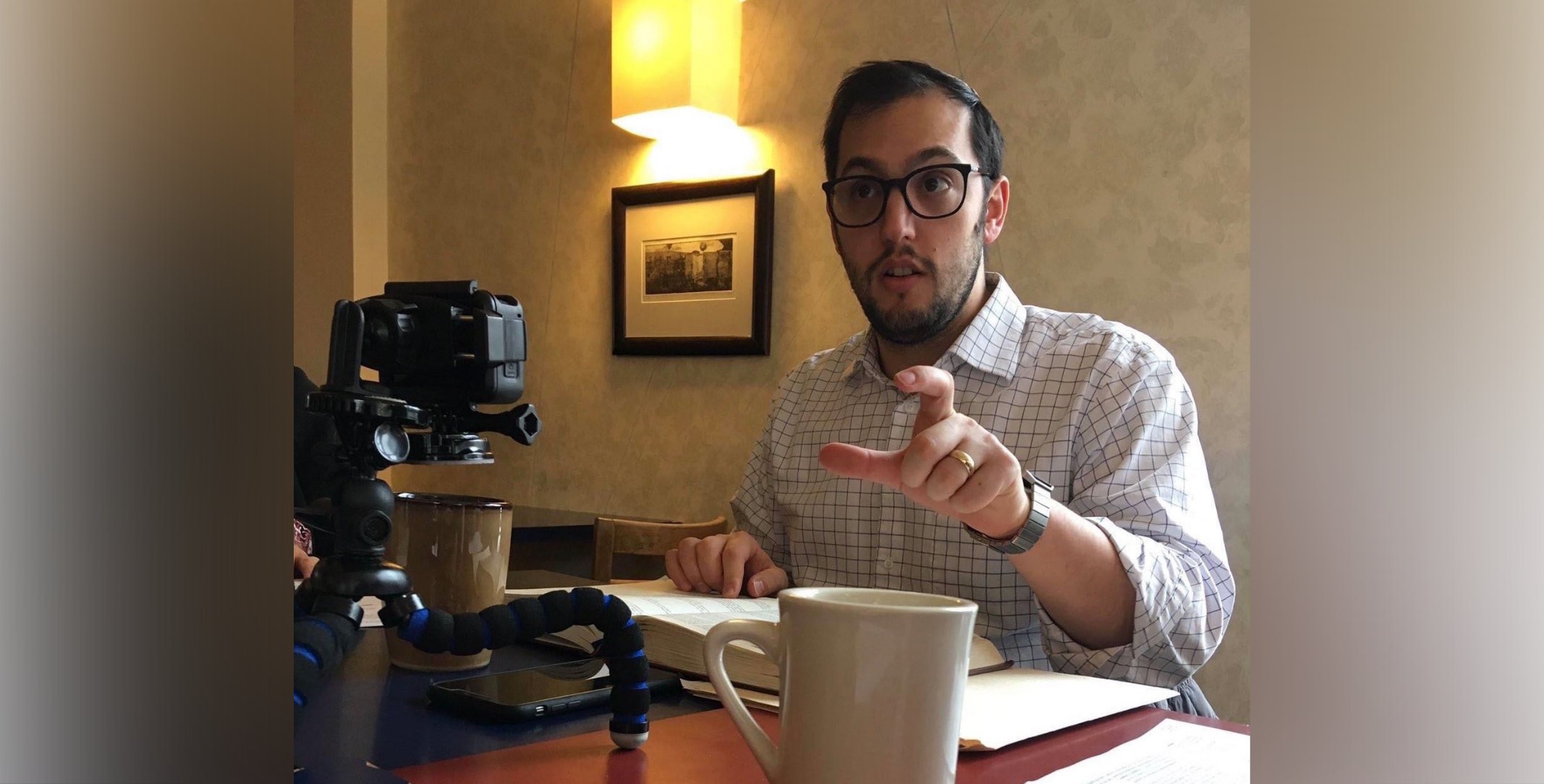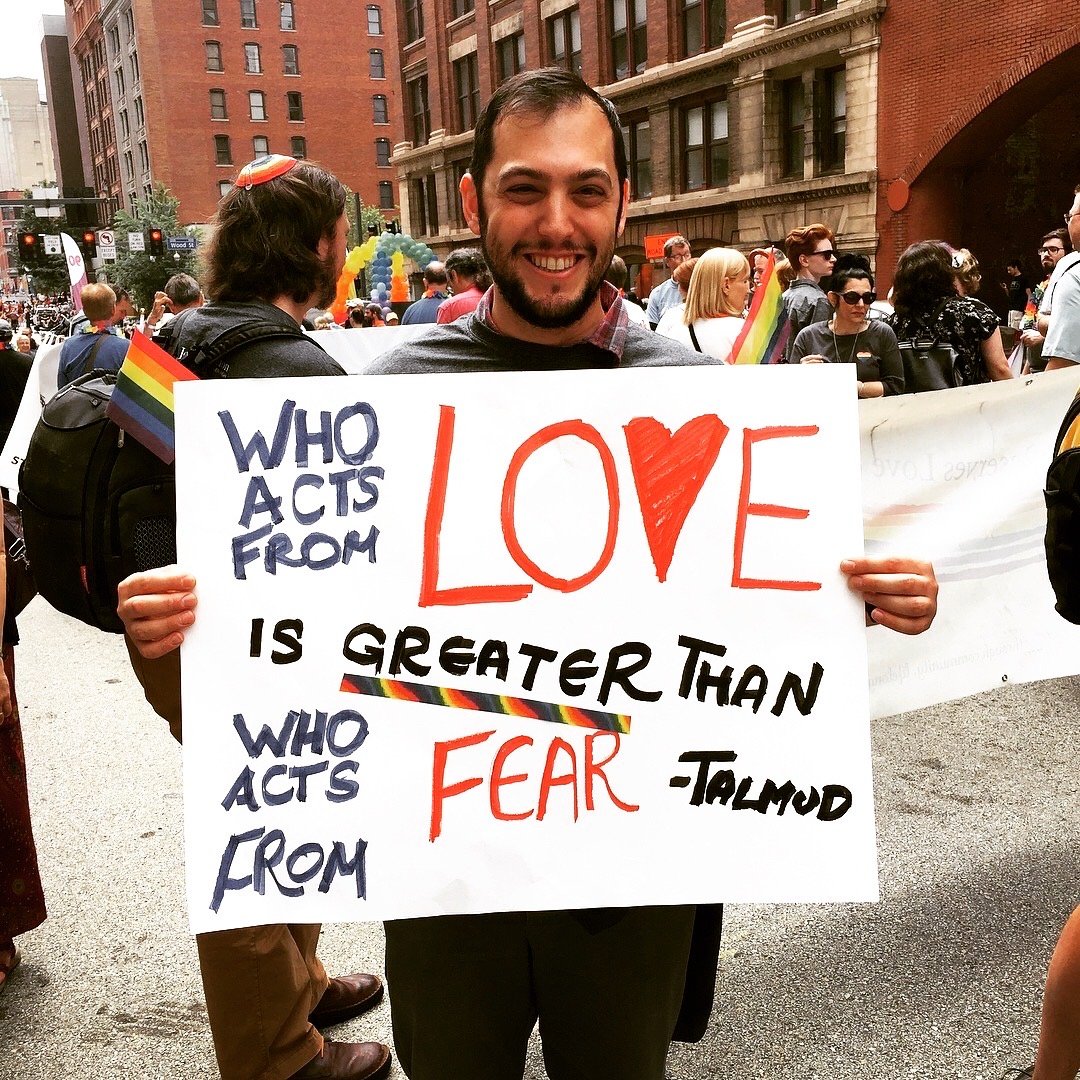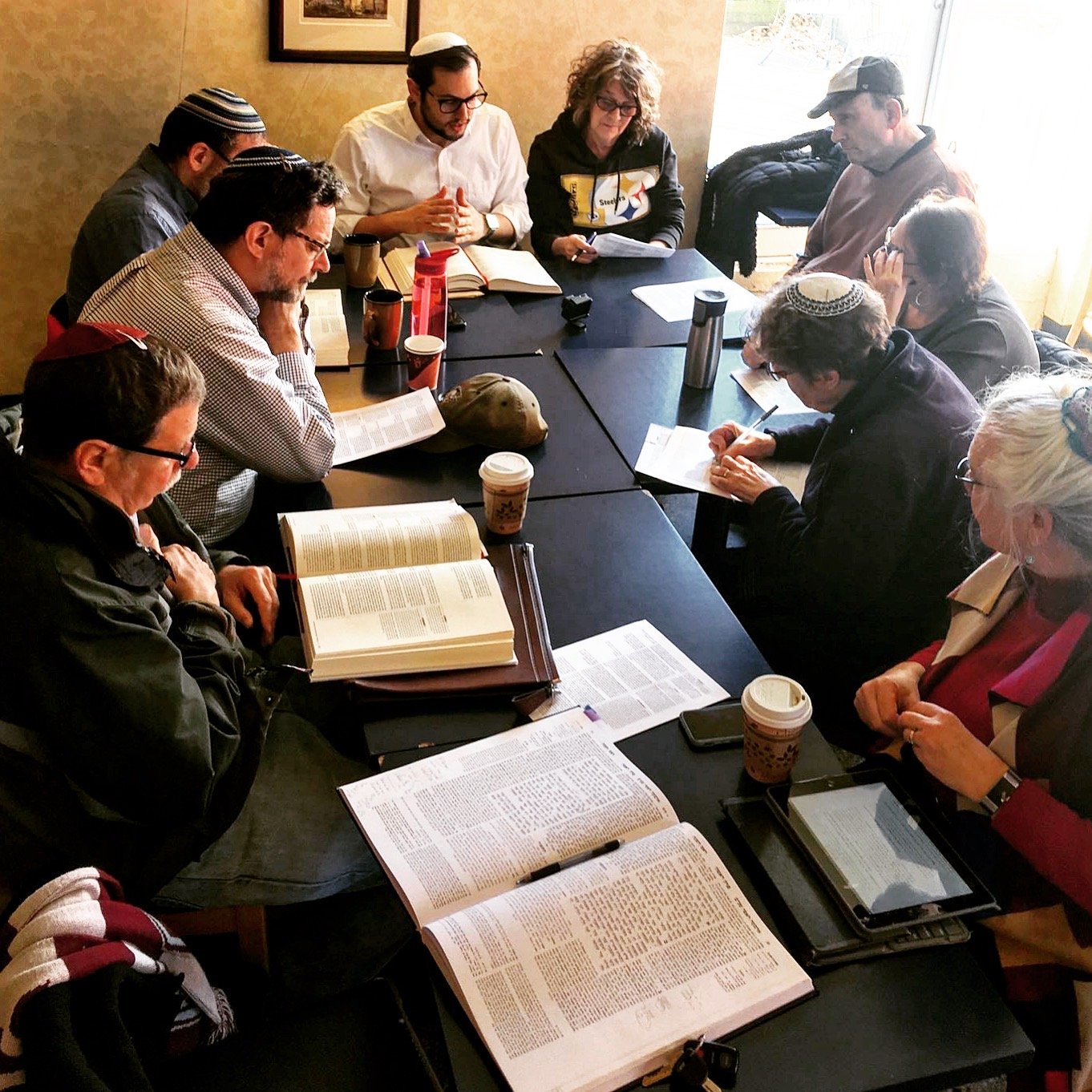
Making an impact in Jewish organizations
When Jeremy Markiz started school at the UO, he didn’t have a sense that majoring in Judaic studies and eventually becoming a rabbi was what he wanted to do. However, despite a full course load his first term, he decided on a whim to register for a Biblical Hebrew class anyway.
“I didn't know it when I entered the UO, but something deep inside certainly did,” Markiz, BA ’10 (Judaic studies) said. “When I was in the sixth grade, we had to do a job shadow, and for whatever reason I chose to job shadow the rabbi. And so clearly that was something that was a part of me, even if I wasn't always really aware that was something I wanted.”
After his first year of college, spending the summer at home, he said he realized just how important Judaism is to him. After a period of trying to take a break from learning about the traditions he’d grown up with, he found his way back, focusing in on Judaic studies at the UO, as well as getting involved with Oregon Hillel, a community of Jewish students, where he built relationships and gained leadership skills.  As he continued studying text through his classes, studied abroad in Israel, and participated in other learning opportunities, Markiz began to define two core values that still motivate his work to this day—literacy and access. He said these guiding principles were born out of a desire to create a more positive learning experience for future Jewish students.
As he continued studying text through his classes, studied abroad in Israel, and participated in other learning opportunities, Markiz began to define two core values that still motivate his work to this day—literacy and access. He said these guiding principles were born out of a desire to create a more positive learning experience for future Jewish students.
“I remember one [experience] in particular where I was studying a piece of Talmud for the first time. It doesn't have vowels in it— it’s written in Aramaic and not Hebrew—which is not something I had a lot of experience in. And I remember sitting there feeling frustrated and upset and like to no one's fault, right? It was just I didn't have enough experience. And from that moment on, I realized that I was committed to this, but I wanted it to be easier for someone else when I moved forward professionally.”
It was largely this mission of increasing Jewish literacy and access to tradition that drove Markiz to attend rabbinical school after graduation from the UO. He moved to Los Angeles a day after commencement, and a year later began his studies at the Ziegler School of Rabbinic Studies, part of American Jewish University.
Following graduation and being ordained as a rabbi in 2016, he moved to Pittsburgh where his wife was starting a medical residency. He found part-time work at a synagogue, Congregation Beth Shalom, which eventually led to a full-time role as director of Youth Tefillah (prayer) and director of Derekh, an adult education program. 
Building interfaith relationships with other congregations and communities was also part of Markiz’s role. He said this aspect of his job became even more important after the 2018 shooting at a neighboring Pittsburgh synagogue building, housing Tree of Life – Or L’Simcha Congregation, Congregation Dor Hadash, and New Light Congregation.
“My synagogue was the building that they went to first. So that first Shabbat after [the shooting], we had those three congregations as well as our own. And I was there to serve my community in that capacity. Interfaith and multiracial community relationships took a really important role in the work that I was doing in Pittsburgh from that point on.”
After five years in Pittsburgh, Markiz and his wife moved to the Washington, DC area in 2021, where he has taken on a new challenge — opening his own consultancy, Next Level Rabbinics. He offers services in communication strategy, adult education work, teaching, and productivity and efficiency consulting for Jewish organizations and congregations.
Right now, one of his largest projects is working with two national organizations on a website to share Torah. Additionally, he writes a weekly newsletter, With Torah and Love, where he shares teachings and reflections on pieces of Torah and Talmud.
“I get to help promote literacy and make stuff more accessible. For me, it’s amazing. I get to live out these values in really meaningful ways.”
—By April Miller, UO Alumni Association Assistant Director of Marketing & Communications

